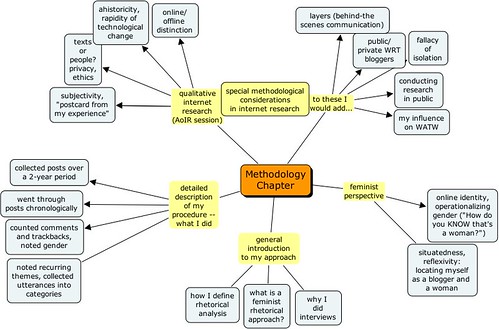Using Weblogs in Your Writing Courses
Clancy Ratliff, Department of Rhetoric
Weblogs and Learning Objectives
One of the best reasons for using weblogs in writing courses is the potential for community interaction that weblogs can help to facilitate. While this is not true in all cases, and some writing teachers have critiqued weblogs' community-building potential, I have found that a course weblog (one community weblog for the whole class) to be an excellent way for students to get to know each other and to learn from each other. If your objective is to create a learning community, weblogs can help you achieve it by giving students a space to share their writing with other students in the class, who have the opportunity to leave comments under their classmates' posts. Weblogs are also a powerful tool for teaching students about writing for an audience, as they are public, and they reach an audience of not only the teacher and the other students in the class, but also readers outside the class who leave comments.
If your objective is to help students synthesize information and make connections through writing, weblogs can help you meet this objective by allowing students to take advantage of the Web. Weblog software makes it easy for students to create content for the Web without knowing much HTML, find online articles related to topics discussed in class, and share them easily with other students. In my experience, blogging encourages associative thinking.
Questions/Issues Raised by Weblogs in Writing Pedagogy
- Having students keep individual blogs v. one community blog for the class, or several small-group blogs: advantages and disadvantages of each
- Privacy for the students (if real names are used, people can find the students via Google)
- Requiring weblog posts, or offering the option of keeping a print journal instead
- The possible feeling on the part of the instructor of being "exposed" if students complain about the class on the blog
- Outside participation: the fact that anyone outside the class can read the blog and leave comments (and they do)
- Assessing weblog posts
- Creating weblog post prompts (and the question of whether there should be prompts, or if the students should have the option to deviate from the prompt topic to a topic of his or her choice)
- Avoiding "forced blogging"
- Best practices for integrating the weblog into class discussion
Resources for Using Weblogs in Writing Pedagogy
Academic Blogging (A learning module about weblogs by Darren Hughes and other researchers at the University of Tennessee). Available at http://edtech.tennessee.edu/~set31/toc.htm
Metablognition: Weblog Course for K-12 Teachers. Available at http://www.weblogg-ed.com/2004/04/03#a1672
UThink: Blogging at the University of Minnesota Libraries. Available at http://blog.lib.umn.edu/
Blogging Thoughts: Personal Publication as an Online Research Tool (PDF) by Jill Walker and Torill Mortensen. Available at http://www.intermedia.uio.no/konferanser/skikt-02/docs/Researching_ICTs_in_context-Ch11-Mortensen-Walker.pdf
Weblogs as a Personal Knowledge Publishing Tool for Scholars and Practitioners
by Charles Lowe. Available at http://cyberdash.com/publishingtool
Open Source Weblog CMS's: An Alternative to Blackboard by Charles Lowe. Available at http://cyberdash.com/node/view/83
Falling out of love ... by premmell at Kairosnews. Available at http://kairosnews.org/node/view/4003
Moving to the Public: Weblogs in the Writing Classroom by Charles Lowe and Terra Williams. Available at http://blog.lib.umn.edu/blogosphere/moving_to_the_public.html
Remediation, Genre, and Motivation: Key Concepts for Teaching with Weblogs by Kevin Brooks, Cindy Nichols, and Sybil Priebe. Available at http://blog.lib.umn.edu/blogosphere/remediation_genre.html
A Course About Weblogs. Available at http://blogosphere.swiki.net/1
(this) Space by Austin Lingerfelt. Available at http://infestation.typepad.com/essence/2004/04/this_space.html
When Blogging Goes Bad: A Cautionary Tale About Blogs, Email Lists, Discussion, and Interaction by Steven D. Krause. Available at http://english.ttu.edu/kairos/9.1/binder.html?praxis/krause/index.html
NOTE: This handout is based on an handout from a previous presentation for the Center for Writing given on 29 October 2004; the handout is available at http://culturecat.net/onlinewriting. I encourage you to go there and view the links!
The material in this presentation is available under an Attribution-ShareAlike Creative Commons license. 







